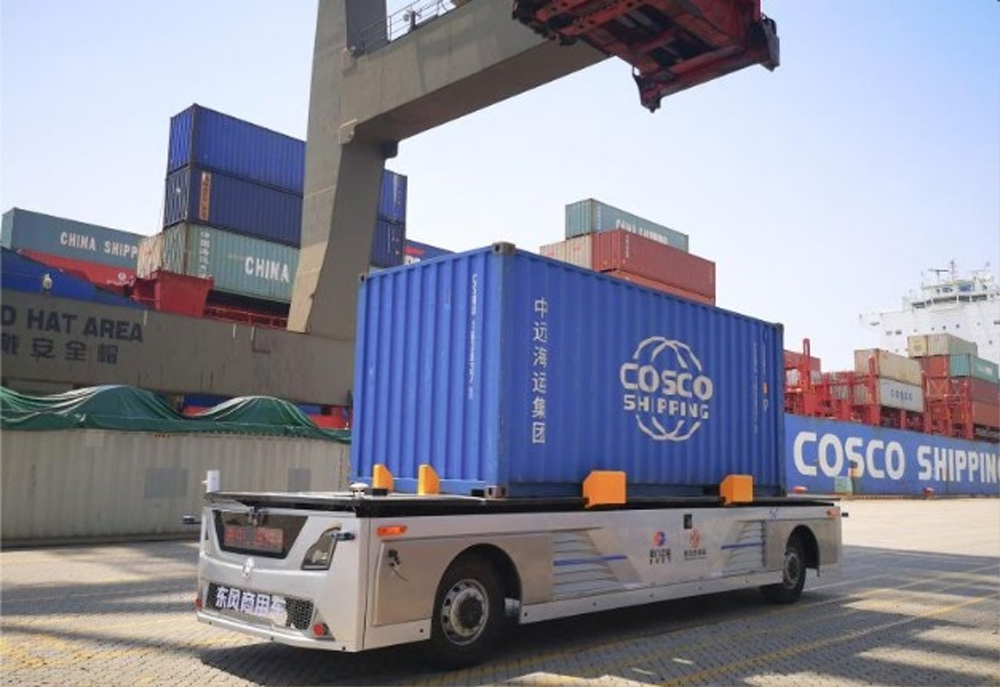Port Automation Technology Demonstrated by Cosco
The successful trial runs of a new automated driverless container truck operating on a 5G platform illustrated yet again the opportunities for port automation. The technology, which is being developed jointly by Cosco Shipping Ports Limited, Dongfeng Commercial Vehicle Co., and China Mobile (Shanghai) Information Communication Technology Co., was demonstrated during a video conference the partners presented on 5G smart ports.
Although ports have adopted automation more slowly than comparable sectors, according to a 2018 report from the management consulting firm McKinsey and Company, port automation continues to be one of the key areas of focus for the shipping industry. The worldwide market for container port automation is projected to grow by $2.5 billion according to a report released by Global Industry Analysts in January 2020.
Attendees at the conference hosted by Cosco and its partners witnessed as a fully automated truck successfully maneuvered around the Xiamen Ocean Gate Terminal in China, accurately positioning with a cargo crane, and loaded and unloaded containers aboard the vessel Cosco Shipping Rose.

Courtesy of Cosco
According to the partners, the successful operation of the 5G smart port marked its advancement from the experimental stage into implementation. They believe it also demonstrated the potential 5G technology would inject into port automation and would promote the intelligent upgrading and transformation of ports.
Cosco Shipping Ports, Dongfeng Commercial Vehicle, and China Mobile also signed a Letter of Intent for extending the application of the 5G+ smart port. They jointly issued an Implementation Plan and Roadmap For 5G Smart Ports that sets out the definition and vision of 5G smart port construction. They also detailed business scenarios constructing 5G private networks in ports that combine with technologies such as edge computing, high-precision positioning, artificial intelligence, and computer vision.

that matters most
Get the latest maritime news delivered to your inbox daily.
By 2025, the goal is to establish an intelligent system with comprehensive perception, ubiquitous interconnection, and port-vehicle collaboration for the Xiamen container port.
